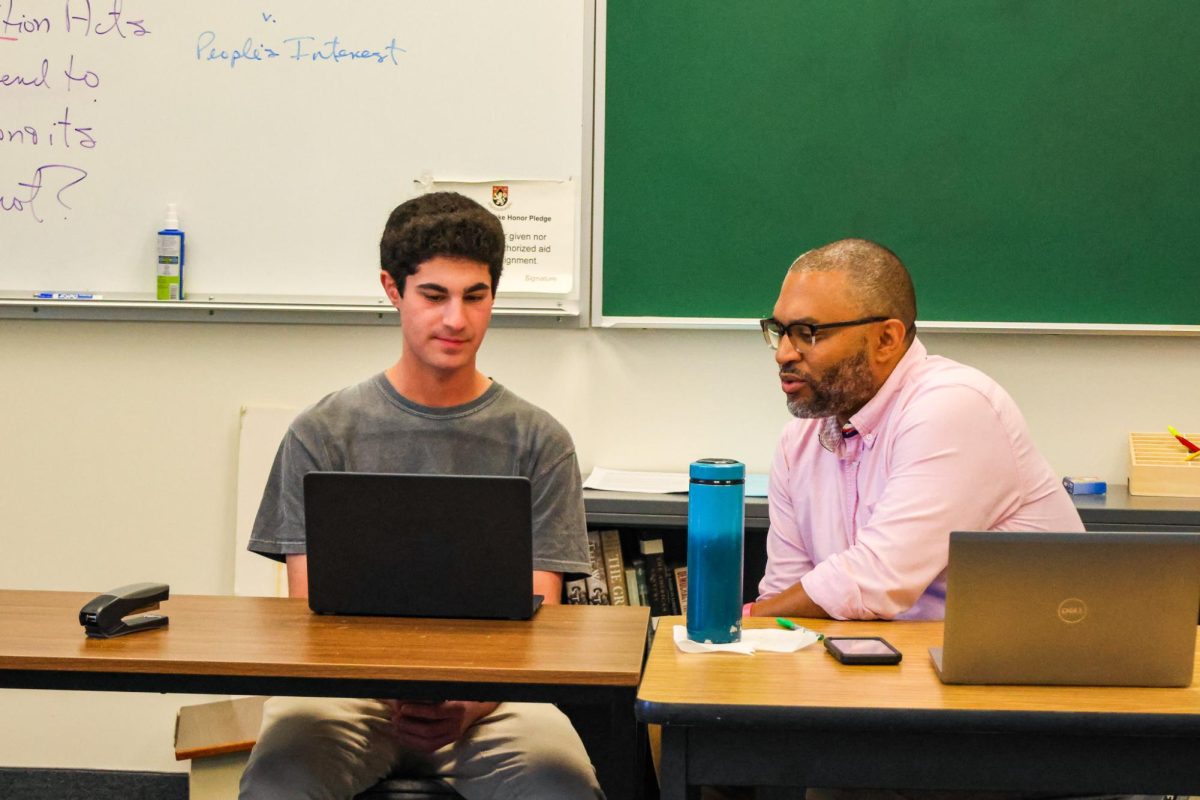A new policy that holds students accountable if they miss more than 20 periods of any single class will take effect this year. Twenty periods is equivalent to about 15 percent of a class that meets four times per cycle.
Upper school dean Beth Slattery announced the new system during a faculty meeting Sept. 29.
“The policy now is that students who miss 20 or more of any regularly scheduled class in the year may be denied credit, and they will have a meeting with their dean, the Head of Upper School, their parents and themselves to talk about it,” Slattery said.
Students who lose credit can sometimes make up work over the summer, but it depends on each circumstance, said Head of Upper School Audrius Barzdukas, who was present at the faculty meeting.
“Last year we had a fair number of kids who we really felt were abusing the system,” Slattery said. “Some of it also was that we had kids who decided to go, for example, on March of the Living, and they missed 10 days. That’s fine and was a very good reason, but prior to that they had already missed fifteen or twenty days of school. It felt as though that maybe that person hadn’t earned that right to go and miss 10 days of school. The policy in place would allow us to preemptively say to a student ‘if you want to have the privilege to go on this special trip, you actually need to go to class.’”
At the beginning of the year, the deans participated in a professional development day with Michael Thompson, a clinical psychologist and educational consultant. They met with the hope of combating the problem of extensive absenteeism.
“We talked about this problem about how do you manage kids who are not coming to school and, in some cases, kids who can do very well in school despite that they aren’t there all the time,” Slattery said. “But what we realized is that it’s not just what they get from being in class, but it’s also what they give to other kids. He said that if [a student] actually values class, then [the school] has to have some kind of standard to hold people to, so the education means something.”
Although the allowed number of days to be missed is standard, there are exceptions to the rule of receiving credit.
“The things that aren’t [punishable], like school-required things such as field trips and early excuse times, wouldn’t be an abuse of attending class,” Slattery said. “Maybe somebody got mono and missed a whole bunch of days, and in that case, the meeting would just be to check in. We’re looking to really crack down on people who have a casual relationship with attendance, and so that’s the primary idea.”
No school trips or activities are being changed to accommodate this new attendance policy.
“What we are hoping to do is to actually change our notification system so that we will [receive emails] when kids miss five and then ten days of school,” Slattery said. “We don’t get a daily report of that [now], so we wanted to have a mechanism for knowing and be able to say, ‘Listen, you’ve already missed ten days, and I know you are intending to go to Cuba. We need to talk about that. We need to manage this better.’”
The decision to implement this process has been generally supported by the faculty.
“It struck me as being fair and reasonable,” President Rick Commons said. “It [seems] flexible and leaves room for students who had legitimate reasons to be absent but creates penalties and incentives for students who seem to be abusing the flexibility of the school.”


































